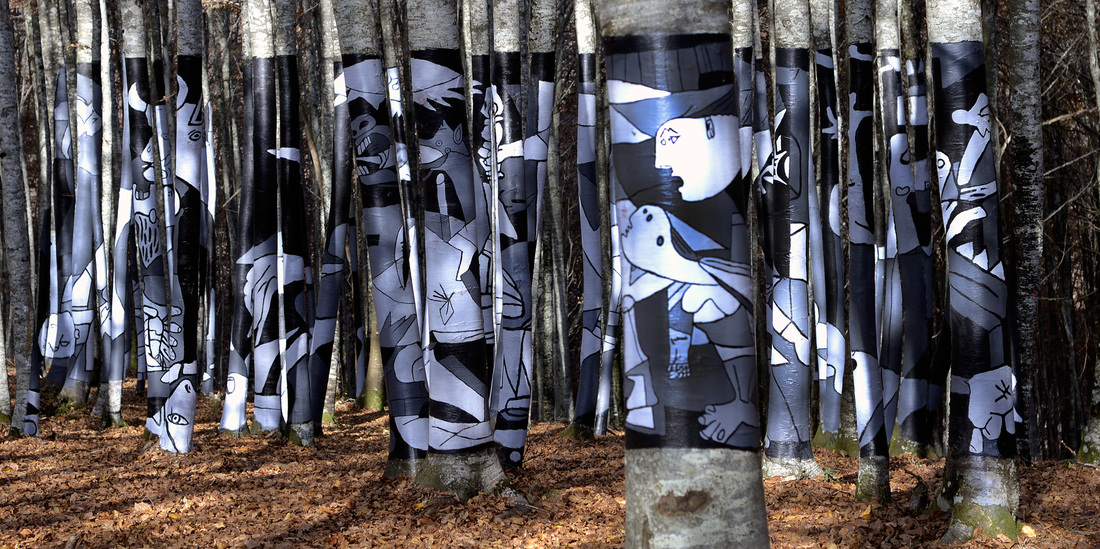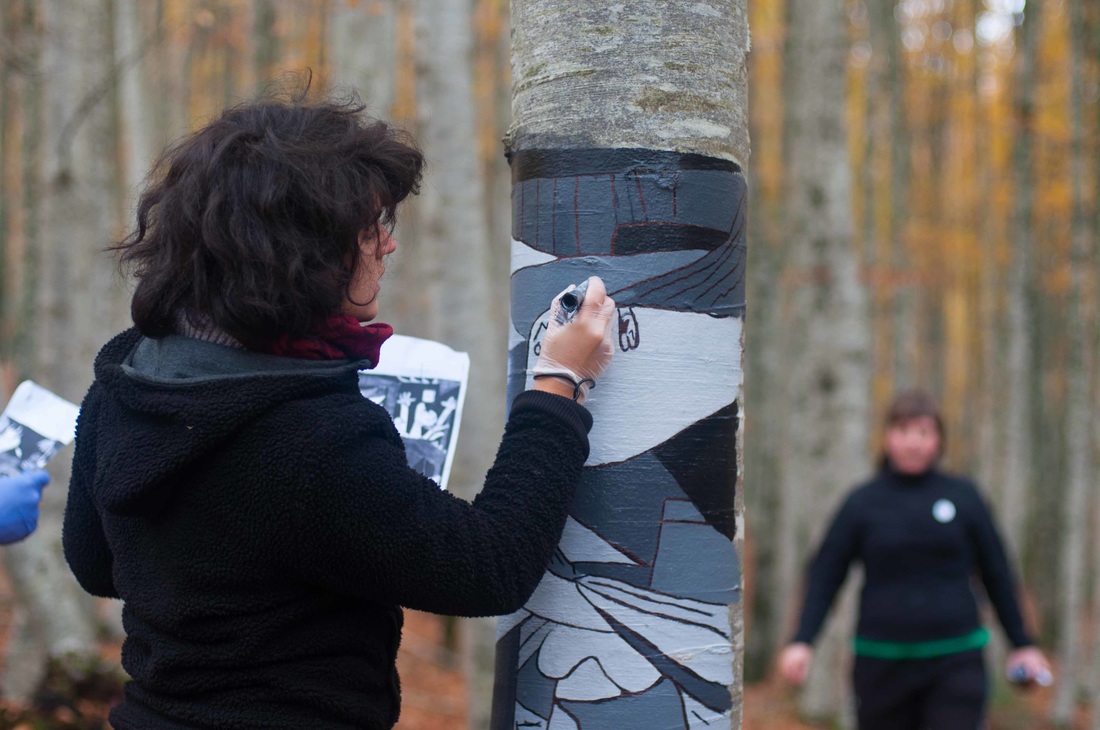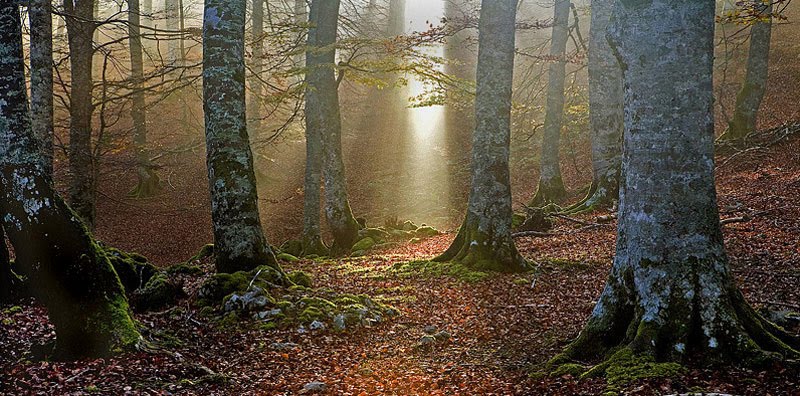Picasso helps locals win momentous victory
Since 2010 another battle has raged, over the future of the forest itself. Arrayed on one side, a Grand Coalition of the mining company MAGNA and the Government of Navarra. On the other, the meagre forces of the tiny village of Zilbeti and their supporters in neighbouring areas, local conservation groups and national NGOs such as SEO-BirdLife Spain.
There is much at stake. The company believe their exisiting magnesite mine is becoming harder to exploit as reserves dwindle. To gain access to new sources they proposed to fell 54,390 beech trees, including, as local ecologists documented, 17,306 mature ones, some centuries old. The forest is home to 20% of Spain's threatened white-backed woodpeckers, as well as European mink and the elusive Pyrenean desman. Moreover, it is protected under European law.
Villagers and the local organisation Coordinadora Monte Alduide decided to call for reinforcements. SEO-BirdLife took up the cause and led a legal fight in the Navarran High Court. But the most audacious manoeuvre came from the local troops themselves
| The 1937 bombing by German and Italian forces of Guernica, just 50 miles away, was the most infamous atrocity of the Civil War. Within months, Picasso's outraged response was touring the world, and was to become the greatest and most famous work of 20th Century art. A copy now hangs in the United Nations, a tragically impotent talisman to ward off the horrors of war and oppression. But Picasso's Guernica has at last helped bring a war to an end. Planning was complex, meticulous and clandestine. Over six nights, 46 beech trees were chosen and the painting's image projected into the forest in order to establish the exact position of each element. |
a symbol of oppression and of hope
This week the High Court gave victory to the forest.



 RSS Feed
RSS Feed
